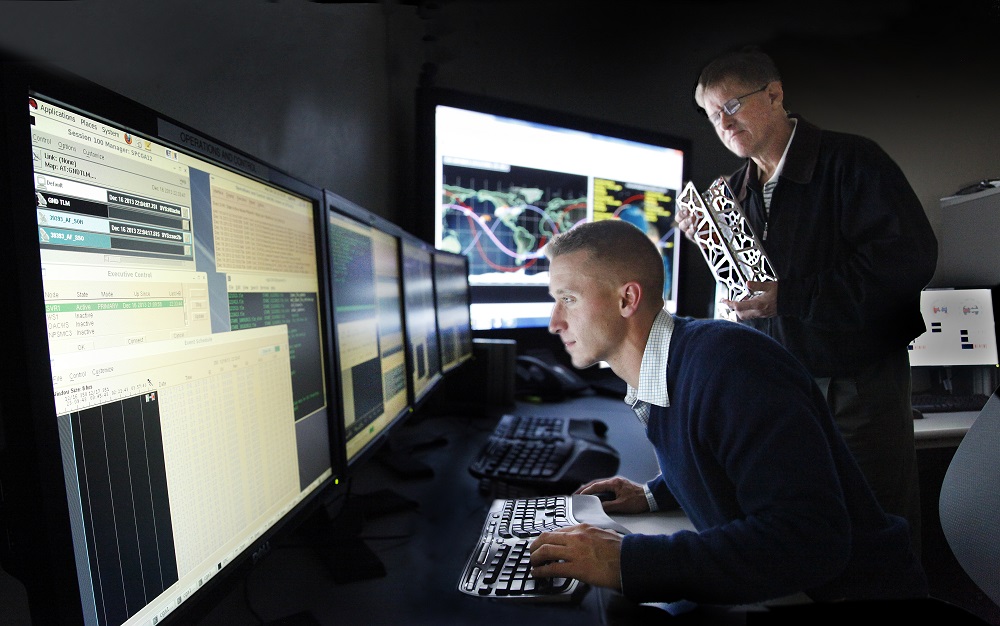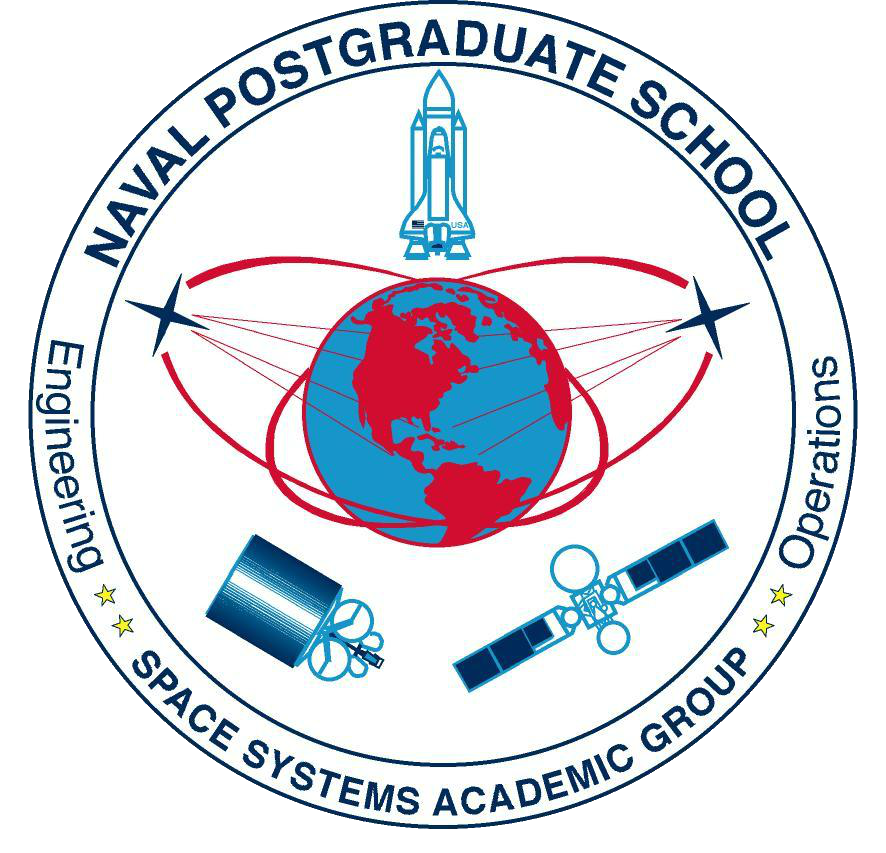Curricula - Space Systems Academic Group

SSAG Education Options
PowerPoint Presentation that illustrates the different education options the Space Systems Academic Group offers.
Space Systems Matrices
Space Systems Operations and Engineering - Curriculum 566
Master of Science Degree Programs (Resident)
Space Systems Operations
The Space Systems Operations students are awarded the degree Master of Science in Space Systems Operations. A minimum of 32 quarter-hours of graduate level work of which at least 15 hours must be at the 4000 level. Graduate courses in at least four different academic disciplines must be included and in two disciplines, a course at the 4000 level must be included. There is also a requirement of three courses constituting advanced study in an area of specialization and an experience tour. Each student is required to write a thesis that is space oriented. The Chairman of the Space Systems Academic Group must approve all study programs.
The Space Systems Operations curriculum is designed to provide officers with knowledge of military opportunities and applications in space. Students are provided instruction about the operation, tasking and employment of space surveillance, communications, navigation and atmospheric/oceanographic/environmental sensing systems as well as payload design and integration -- specifically for the exploitation of Space and Information products.
Space Systems Operations curriculum is one of the Information Superiority (IS) curricula, which encompasses several degree tracks: Computer Sciences, Joint C4I Systems, Information Systems and Technology, Information Warfare, Intelligence Information Management, Modeling, Virtual Environments and Simulation, and Space Systems Operations. The Professional Practice Core of the Information Superiority (IS) curricula consists of material in Information Sciences and Technology, Command and Control, C4ISR Systems, Acquisition, C4ISR System Evaluation, Information Operations\Warfare, and Enterprise Policy, Strategy and Change. This specialization satisfies the Information Superiority education skill requirements as established by CNO-N6.
Click for more information on this program...
Space Systems Operations (International Students)
The Space Systems Operations (International) curriculum is designed to provide international officers with knowledge of military opportunities and applications in space. It is also available to US citizens who may not have a security clearance. Students are provided instruction about the operation, tasking, and employment of space surveillance, communications, navigation, and atmospheric/oceanographic/environmental sensing systems as well as payload design and integration — specifically for the exploitation of Space and Information products. For a complete description, see the Space Systems Operations section of the catalog.
Click for more information on this program...
Space Systems Engineering
The Space Systems Engineering students earn a Master's degree in one of the following academic areas: Astronautical Engineering, Computer Science, Electrical and Computer Engineering, Mechanical Engineering, or Physics. Refer to the degree requirements in the associated departments.
The Space Systems Engineering program provides officers, through graduate education, with a comprehensive scientific and technical knowledge of military and Navy space systems. This curriculum is designed to equip officers with the theoretical and practical skills required to design and integrate military space payloads with other spacecraft subsystems. Graduates will be prepared by their education to design, develop and manage the acquisition of space communications, navigation, surveillance, electronic warfare and environmental sensing systems.
Click for more information on this program...
Ph.D. Degree Programs (Resident)
Space Systems Engineering Ph.D. - Curriculum 597
Ph.D. degrees in Astronautical Engineering, Electrical Engineering and Physics are available.
Click for more information on this program...
Academic Certificate Programs (Resident)
Space Control, Tactics, & Operations Certificate (SCTO) - Curriculum 266
The Space Control, Tactics, & Operations (SCTO) Certificate is a four-course sequence that focuses on space control, specifically rendezvous and proximity operations. It is designed to serve the DoD Space community and increases the ability to meet DoD Space mission objectives. It provides a technical basis in orbital mechanics and space systems modeling and simulation, as well as the implications of operating space systems in a contested environment.
Distance Learning (DL) Programs
738: Master of Science in Nuclear Operations
The Nuclear Operations curriculum is designed to be completed via distance learning and to provide students with knowledge of nuclear operations such as nuclear deterrence and assurance, nuclear weapons effects, nuclear command, control and communications (NC3), space-based systems used for early warning and communications, nuclear platforms, nuclear command and control (NC2), nuclear policy and nuclear non-proliferation. Students will complete the Space Nuclear Command, Control, and Communications (SNC3) certificate (Requirement #1), a nuclear deterrence and policy certificate (Requirement #2), which can be completed through the Naval Postgraduate School or an equivalent pre-approved certificate from another institution such as The Air Force Institute of Technology (AFIT), Harvard University Extension School, or Missouri State University. Students will then complete a pre-approved track of four courses (Requirement #3). Currently, one track is available; however, new tracks may become available in the future. Students will complete an approved thesis or capstone project (Requirement #4).
298: Space Nuclear Command, Control & Communications Certificate
The Space Nuclear Command, Control & Communications (NC3) Certificate is comprised of four courses. Upon successful completion of the course work, students will be awarded a certificate of completion in keeping with standard practices of the Naval Postgraduate School. The Space NC3 Certificate supports objectives corresponding to required space, ground and classified elements of USAF Global Strike Command’s strategic Nuclear education components. This certificate is a distance learning, asynchronous education program that covers satellite technology and communication fundamentals relevant to U.S. strategic nuclear operations, deterrence and assurance.
273: Space Systems Fundamentals Certificate
The Space Systems Certificate program is comprised of four courses. Upon successful completion of the course work, students will be awarded a certificate of completion in keeping with standard practices of the Naval Postgraduate School as well as the 6206L subspecialty code. The Space Systems Certificate program supports Navy and DoD space educational needs and complements existing resident training by providing cross-disciplinary science and technical education. The Space Systems Certificate program is targeted primarily at enhancing the education and preparation for USN Space Cadre personnel. The Navy's Space Cadre represents a distinct body of expertise horizontally integrated within the Navy active duty, reserves, both officer and enlisted, and civilian employee communities organized to operationalize space.

